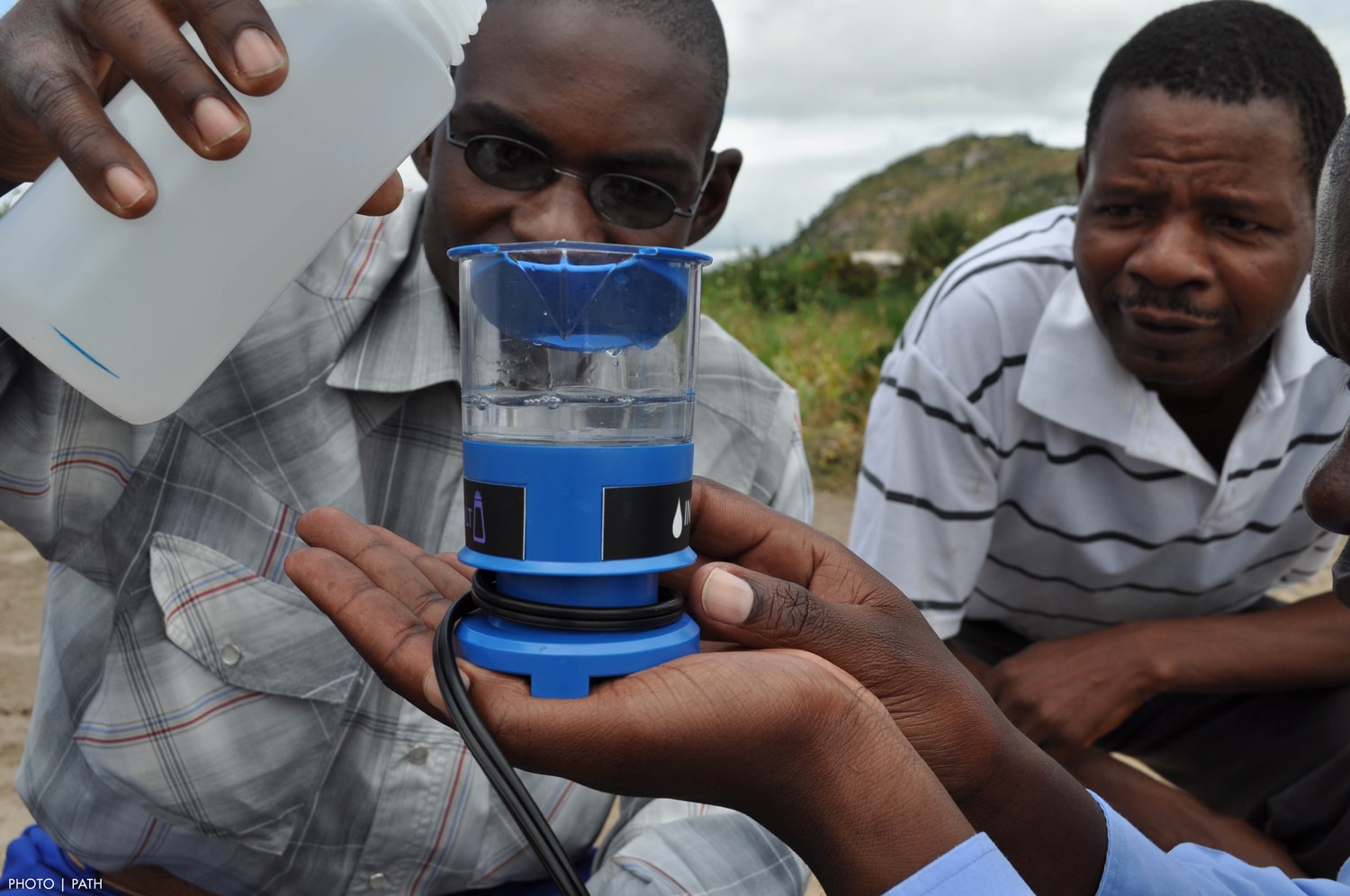“Clean water changes everything. It is the common denominator of all life.” – Tim Oriard, principal scientist for MSR.
Clean drinking water is a given for most of us. Turn a faucet, buy a bottle or whip out your favorite water filter–we rarely have to think about this most basic human need. However, millions of people around the world struggle to get clean water on a daily basis. November is a time to give thanks and give back, so we’re highlighting a humanitarian project headed up by Mountain Safety Research (MSR).
MSR has pioneered cutting-edge gear engineered for mountaineering since 1969. Now the company is using its decades of engineering expertise to create a device to get clean drinking water to thousands of people who truly need it. MSR is calling the SE200 Community Chlorine Maker the most important piece of gear it’s ever made. And you can be a part of the story.
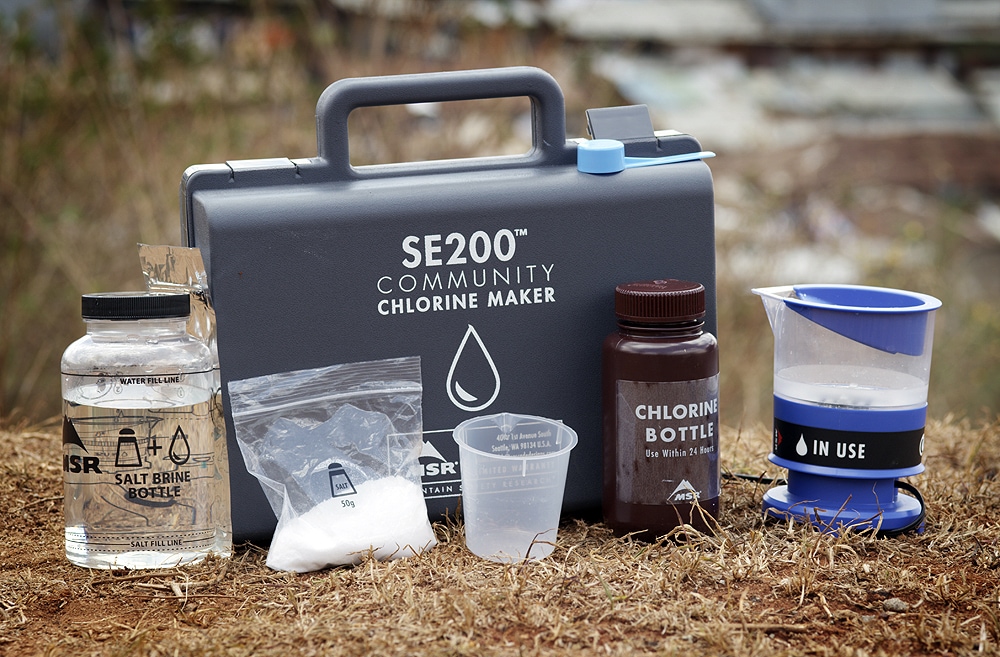
The goal: to get 2,500 devices into the hands of those who need it most and provide safe water to 500,000 people. Your role: to contribute to MSR’s Indiegogo fund for the deployment of clean-water technology to communities worldwide.
The Need
Clean water is an unattainable luxury for 1.8 billion people around the globe. In fact, the second largest cause of death for children in the developing world is diarrheal disease from unsafe drinking water. It’s estimated that every 90 seconds a child dies from a waterborne illness.
There are many devices and solutions for disinfecting water in a single household or an entire city, but few options available for communities in between. That’s where this story begins.
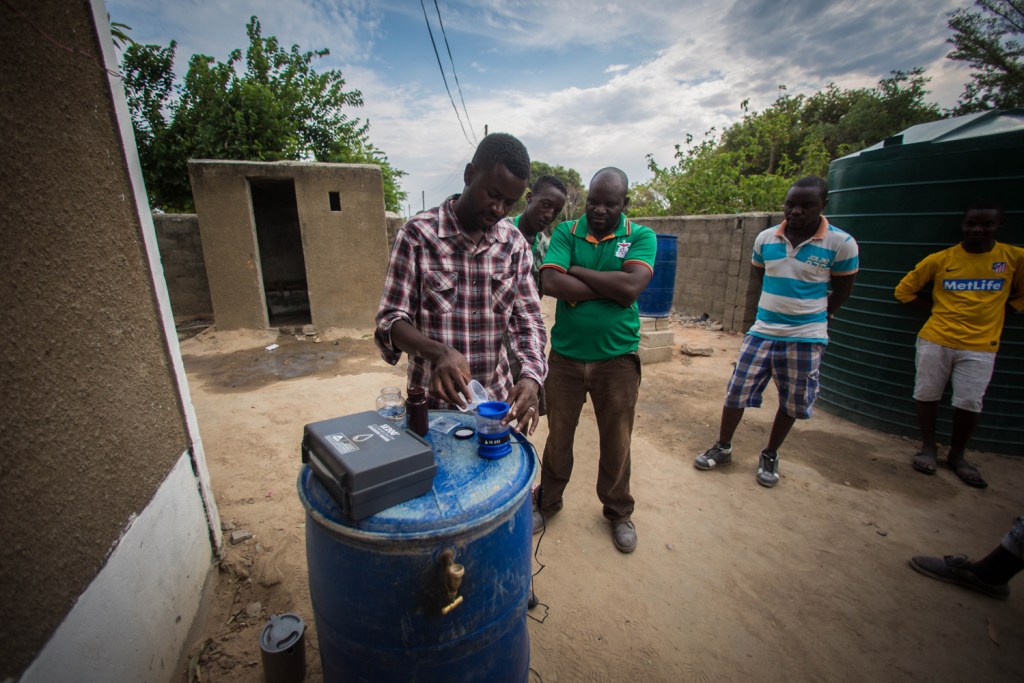
In 2008, PATH, a global health nonprofit based in Seattle, challenged MSR to use its water treatment research for the military and outdoor enthusiasts for a different purpose. They wanted a solution to get clean water to communities of 50 to 200 people that have no money or regular access to a supply chain.
Jane Mauser, MSR director of marketing, gives this assessment:
“At first glance, the outdoor gear industry and global health markets may seem far removed. But food, water and shelter are concerns for us all, whether we’re scaling high peaks in the Cascade Range or living day to day in a remote village in Kenya. At MSR, we believe that the solutions to greater global health are out there, and that our team can engineer them, bring them to life and help deliver innovations that lead to a healthier world.”
The Solution
In most of the world, municipal water supplies treat tap water with chlorine, which reduces the threat of waterborne diseases. Chlorine isn’t easy to transport, store or dose properly, but it is one of the cheapest and most effective ways to disinfect water.
MSR harnessed existing technology to create a compact, durable device that makes chlorine onsite with the push of a button. Using resources that almost any community has readily available–salt and a 12-volt battery–a single device makes enough chlorine to treat 200 liters (52 gallons) of water in just five minutes.
“This technology is what happens when a world class global health organization and a 40-year-old outdoor company set out to solve a problem,” says Laura McLaughlin, director of MSR Global Health.
The Device
The SE200 Community Chlorine Maker is a small plastic canister that is easy to transport and use. Using the provided cable, users simply attach the device to a 12V battery, vehicle battery or even a wall outlet. They add salt and water to the brine bottle, shake and add the solution to the device. Then they push one button and wait.
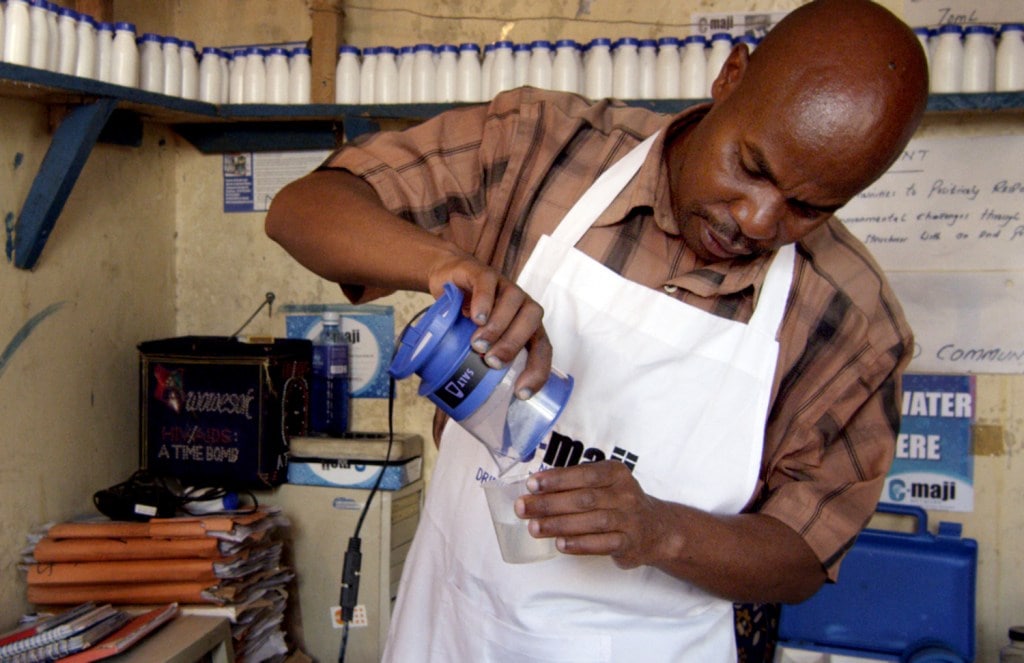
Over the course of five minutes the water bubbles from a chemical reaction called electrolysis. Salt breaks apart into sodium and chlorine ions in water. The electricity from the battery separates the negative and positive ions. The reaction creates gas and chlorine. It’s simple, elegant science.
The device has sensors that make sure it always makes the right amount of solution, preventing under-chlorinated water while also ensuring the water does not become unpleasant or dangerous to drink.
The Reach
From 2010 to 2014 two prototypes were tested in a dozen countries around the globe, including Kenya, Ghana, India and Haiti. Scientists back at MSR headquarters perfected the product over the testing phase. With the help of prototype users, they made it tough, transportable, easy to repair and simple to use.
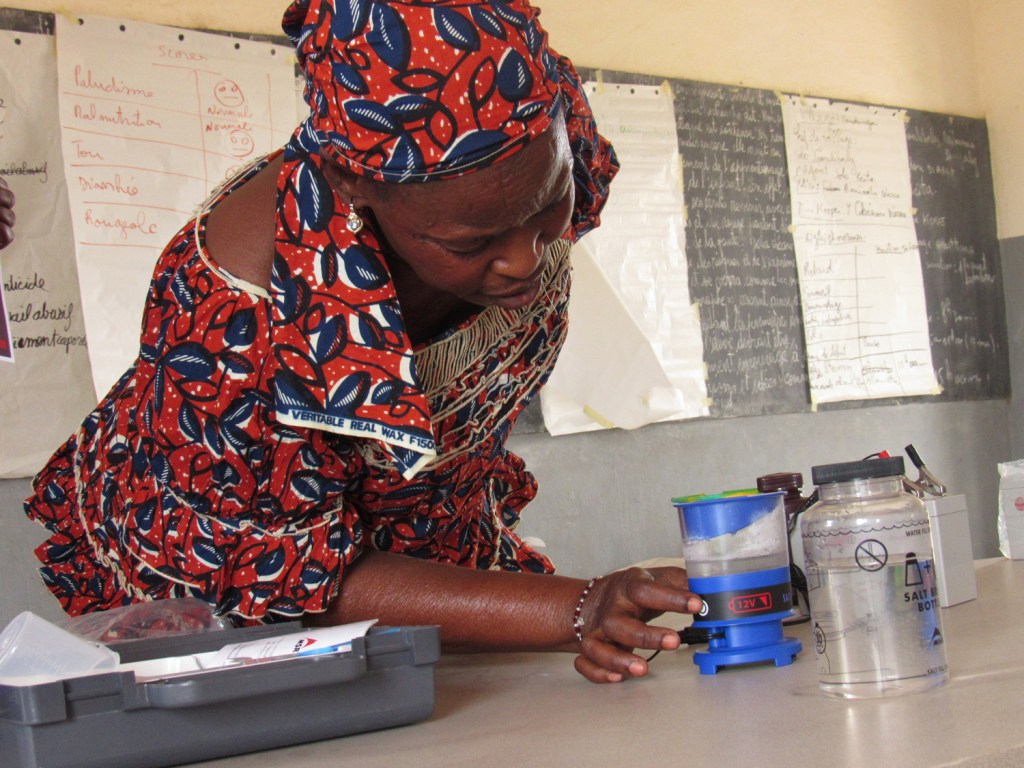
Last year MSR commercialized and launched the device. Since the launch, MSR has teamed up with humanitarian aid organizations World Vision and Operation Blessing to distribute it to communities. They also train operators and encourage entrepreneurship, allowing experts in each community to provide clean water and support their own families at the same time.
Patrick Diller, business development manager at MSR Global Health, states:
“Both World Vision and Operation Blessing are organizations that have the infrastructure and capabilities that do more than just get these devices to people. They focus on education, training and support so it can be a sustainable intervention for communities. These organizations provide the extra level of support needed.”
The Ask
MSR has 2,500 devices ready to go. Just one can ensure safe water for a community of 200 people for up to five years. With your help, World Vision and Operation Blessing can send out every device and provide 500,000 people with a sustainable way to create their own safe drinking water.
Head to MSR’s Indigogo page to learn more and contribute now. Clean water is a human right.
